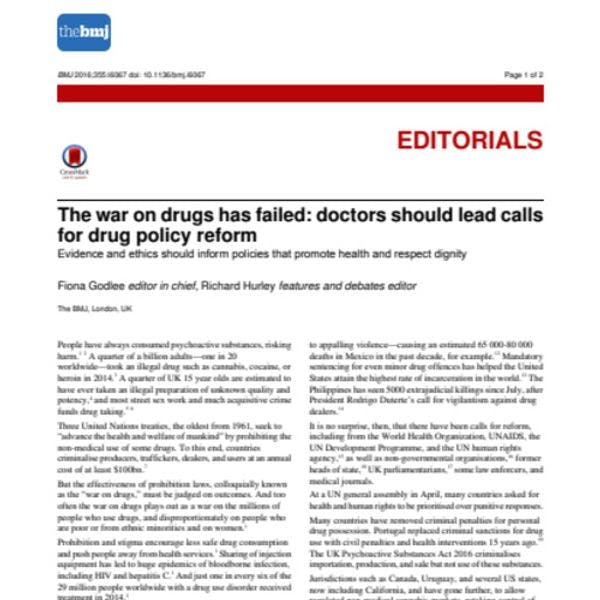La guerra contra las drogas ha fracasado: la comunidad médica debería liderar los llamamientos a favor de la reforma normativa
La revista The British Medical Journal sostiene que las pruebas empíricas y los principios éticos deberían ser la base de las políticas que promueven la salud y respetan la dignidad, áreas problemáticas que deberían defender la comunidad médica y sus representantes.
Más información, en inglés, está disponible abajo.
Suscríbase a las Alertas mensuales del IDPC para recibir información sobre cuestiones relacionadas con políticas sobre drogas.
People have always consumed psychoactive substances, risking harm. A quarter of a billion adults—one in 20 worldwide—took an illegal drug such as cannabis, cocaine, or heroin in 2014. A quarter of UK 15 year olds are estimated to have ever taken an illegal preparation of unknown quality and potency, and most street sex work and much acquisitive crime funds drug taking.
Three United Nations treaties, the oldest from 1961, seek to “advance the health and welfare of mankind” by prohibiting the non-medical use of some drugs. To this end, countries criminalise producers, traffickers, dealers, and users at an annual cost of at least $100bn.
But the effectiveness of prohibition laws, colloquially known as the “war on drugs,” must be judged on outcomes. And too often the war on drugs plays out as a war on the millions of people who use drugs, and disproportionately on people who are poor or from ethnic minorities and on women.
